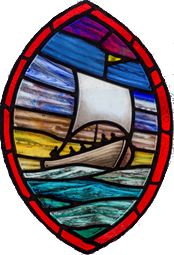Bishop Leo O’Reilly’s Homily for Christmas Eve 2018
I happened to tune in to a radio programme in Germany a couple of days ago. It was about an unusual carol service that takes place every year in a football stadium in East Berlin. East Berlin of course was the capital of the former Communist East Germany. Of all the regions of the old Soviet Union, it was the most rigidly Communist and almost completely atheist. Most people would never have even heard the story of Christmas.
But back in 2010, a group of football fans in the east side of the city were out on Christmas eve for a few drinks. On the way home they stopped at the Stadium and began to sing Christmas carols. They had picked up the words and the tunes but they hardly knew what they meant except that this was the time of year to sing them. But it touched something in them and the following year they did it again, and others heard about it and joined them. Soon there were so many coming that they had to let them into the stadium. By this time an elderly priest had joined them, and at some point in the proceedings he read the story of Jesus’ birth that we have just heard in the Gospel.
Now, the carol singing in the stadium is a firmly established Christmas tradition and it is packed out every year. Only season ticket holders can get in. The high point of the evening is the reading of the Gospel and there is total silence for that. For most of those present, this gathering was the first place they had ever heard the story of Jesus’ birth.
Christmas carols tell the story of Jesus’ birth in song. The Gospels tell it in words. It’s told in pictures in Christmas cards and in the crib. It’s a simple story, but a powerful one. Whatever way it’s told, it’s like a magnet that attracts us, draws us in and touches our hearts – even the hearts of those who are not Christians at all.
That story has drawn us here tonight. We might have come out of deep faith in the mystery of the incarnation – because we believe that God has taken human flesh and been born among us. Or we might be here just because it’s an annual ritual – part of what we’ve always done at Christmas. Maybe it’s a reminder of the distant thrill of Christmas as a child – the feeling that Kavanagh caught so well in ‘A Christmas Childhood’, where he talks about his father playing the melodeon and his mother outside milking:
Outside in the cow-house my mother
Made the music of milking;
The light of her stable-lamp was a star
And the frost of Bethlehem made it twinkle.
A water-hen screeched in the bog,
Mass-going feet
Crunched the wafer-ice on the pot-holes…
Across the wild bogs his melodeon called
To Lennons and Callans.
As I pulled on my trousers in a hurry
I knew some strange thing had happened.
“Some strange thing had happened”, an utterly strange thing, a great mystery: God became human, the Word became flesh and lived among us, and we saw his glory. There could be nothing stranger than that.
So whether it’s deep faith that brought us here or childhood nostalgia or the comfort of ritual, the important thing is that we are here and that we savour the moment, enter into the experience and allow ourselves to be touched by the extravagant generosity of God.
So tonight I invite you to open your heart to the strange thing that happened in Bethlehem long ago, and continues to happen in the Church today. I invite you to open the door of your life to God’s knock. In the Book of Revelation we find an extraordinary image of God, a God who so much respects our freedom that he is almost shy about disturbing us. The image is Jesus standing outside a locked door saying: “Behold, I stand at the door and knock. If one of you hears me calling and opens the door, I will come in and share his meal, side by side with him.”
At the first Christmas there was no room for Jesus at the inns of Bethlehem. Two thousand years later he is still knocking. He stands outside the door of our lives tonight. He knocks. Will I dare to open the door?

